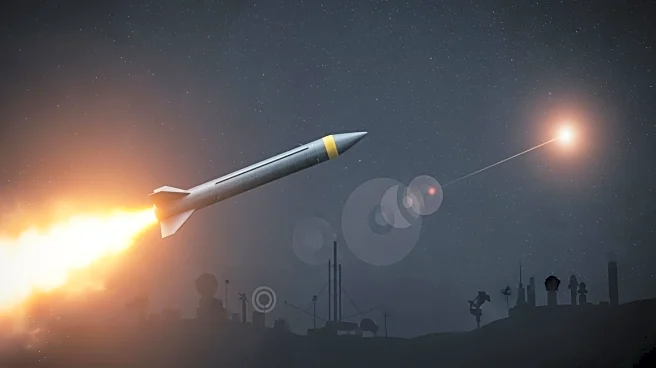What's Happening?
Israel confirmed the death of Mohammed Abd al-Karim al-Ghamari, the Houthi chief of staff, following an airstrike in late August. Al-Ghamari was a pivotal figure in the Houthi military, responsible for
missile and drone attacks against Israel. His elimination is seen as a major success for Israel, showcasing its intelligence and operational capabilities. The strike also killed other senior Houthi leaders, marking a significant disruption to the group's command structure. Al-Ghamari's death is considered a strategic victory not only for Israel but also for Yemen's internationally recognized government and the broader Arab world.
Why It's Important?
The removal of al-Ghamari is a critical development in the ongoing conflict involving the Houthis, impacting their military operations and regional influence. This action by Israel could deter future Houthi attacks and alter the group's strategic approach. The strike demonstrates Israel's ability to conduct precise military operations, potentially influencing regional power dynamics and alliances. The appointment of Yousef Hassan al-Madani as al-Ghamari's successor could lead to changes in Houthi tactics and their engagement in the conflict.
What's Next?
The Houthi response to this leadership loss will be pivotal in determining the future of the conflict. Al-Madani's leadership could bring new strategies and possibly escalate tensions if retaliatory actions are taken. The international community, including the U.S. and Saudi Arabia, will be observing the situation closely, as it could affect regional stability and security. The ceasefire in Gaza and the broader geopolitical landscape will also play a role in shaping future developments.
Beyond the Headlines
This event highlights the intricate web of alliances and enmities in the Middle East, where proxy wars and external influences shape the conflict. The involvement of Iran and Hezbollah in supporting the Houthis underscores the broader regional implications. The situation raises questions about the effectiveness of military interventions and the role of intelligence in achieving strategic objectives.










